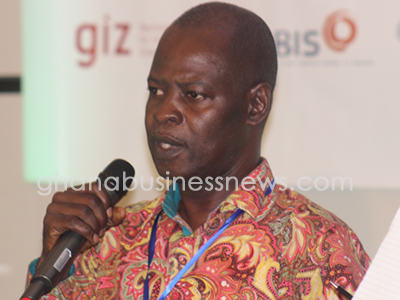PIAC takes accountability on petroleum revenue to Upper East

The Public Interest and Accountability Committee (PIAC) is embarking on a weeklong accountability and evaluation exercise in five selected Municipal and District Assemblies in the Upper East Region.
The Assemblies include: the Kassena-Nankana Municipal, Builsa South, Builsa North, Bongo and Garu districts.
The exercise is in fulfilment of the Petroleum Revenue Management Act (PRMA) 2011, Act 815, which mandates the Committee to undertake compliance monitoring in connection with the use of the petroleum revenue to fund development projects, provide a platform to promote public understanding as well as undertake independent assessment of oil funded projects.
The team led by Dr Steve Manteaw, the Chairman of the Committee, engaged representatives of various groups in the society including professional groups, pressure groups as well as religious and traditional authorities on the use of the oil revenue by government to finance some of its development projects since 2011 to 2017.
Speaking to stakeholders at Fumbisi in the Builsa South District, the Chairman said the oil revenue belonged to all Ghanaians and every citizen needed to know the sources of the revenue and how the monies were spent.
He said PIAC as a non-partisan body with complete independent representation of citizen’s interest was established to manage the affairs of the petroleum revenue accrued from the three oil fields including Jubilee Oil Field, TEN Field and Sankofa Gye Nyame Field and stored in the Petroleum Holding Fund (PHF).
Dr Manteaw said for the seven years of petroleum production, the country has realized about 253,085,873 barrels of crude oil resulting in $4.009 billion after sharing with the production partners since production begun in December 2010.
“In 2011, we got $444.13 million, 2012 we got $541.62 million, 2013 we had $846.77, 2014, $978.01 million, 2015, $396.17 million, 2016, $247.18 million, and in 2017 we got $555.33,” he said.
He said the Ghana National Oil Company funding, Annual Budget Funding Amount, the Ghana Stabilization Fund, the Ghana Heritage Fund and exceptional purposes transfers are avenues the oil proceeds are always allocated to, per the Act that established PIAC.
He said over the last seven years $4.036 billion have been distributed among these groups.
The Chairman said in reference to the law, the government is obliged to select four out of 12 priority areas in every medium-term expenditure to expend the Annual Budget Funding Amount.
Dr Manteaw said “in the Mahama administration, the government selected the following four areas; agriculture modernization, infrastructure development, capacity building and amortization of loans contracted with the oil and gas sector and in the second medium term the government decided to maintain the same four areas and GH¢3,306,880,313 was spent during the six years.”
He said the current government, selected agriculture, road, railway and other critical infrastructure development, physical infrastructure and service delivery in education as well as physical infrastructure and service delivery in health.
He said it received about GH¢700 million and spent about GH¢332 million, while the remaining amount is yet to be accounted for.
The Chairman said prices of oil at the international market was not stable as recorded between 2015 and 2016 and major development projects could not solely depend on proceeds gotten from the oil sector.
He advocated for an increase on the 11 percent of petroleum revenue allocated to the agricultural sector as it is the mainstay of the economy adding that there is the need to define guidelines for the selection of the priority areas.
Source: GNA
